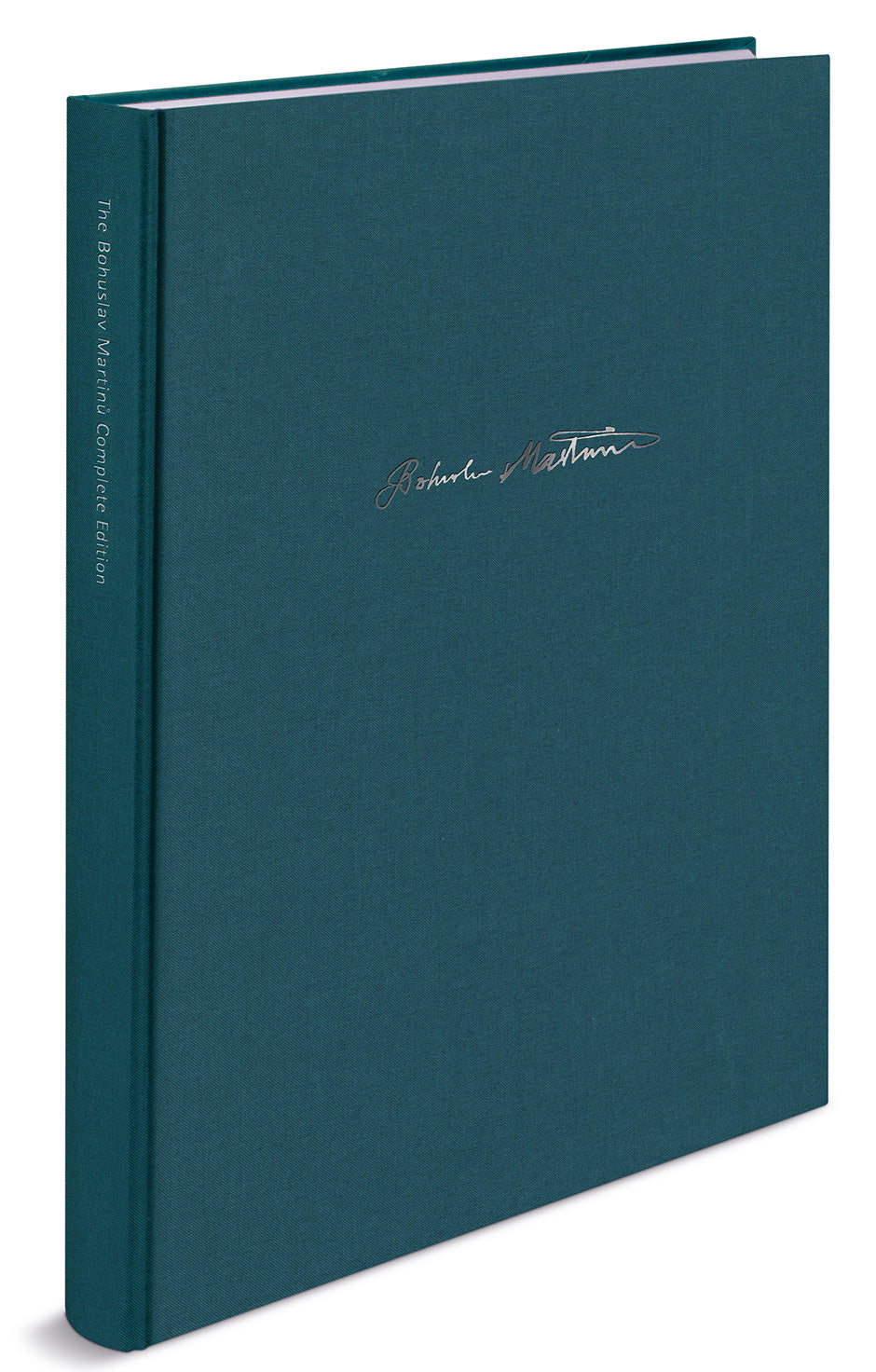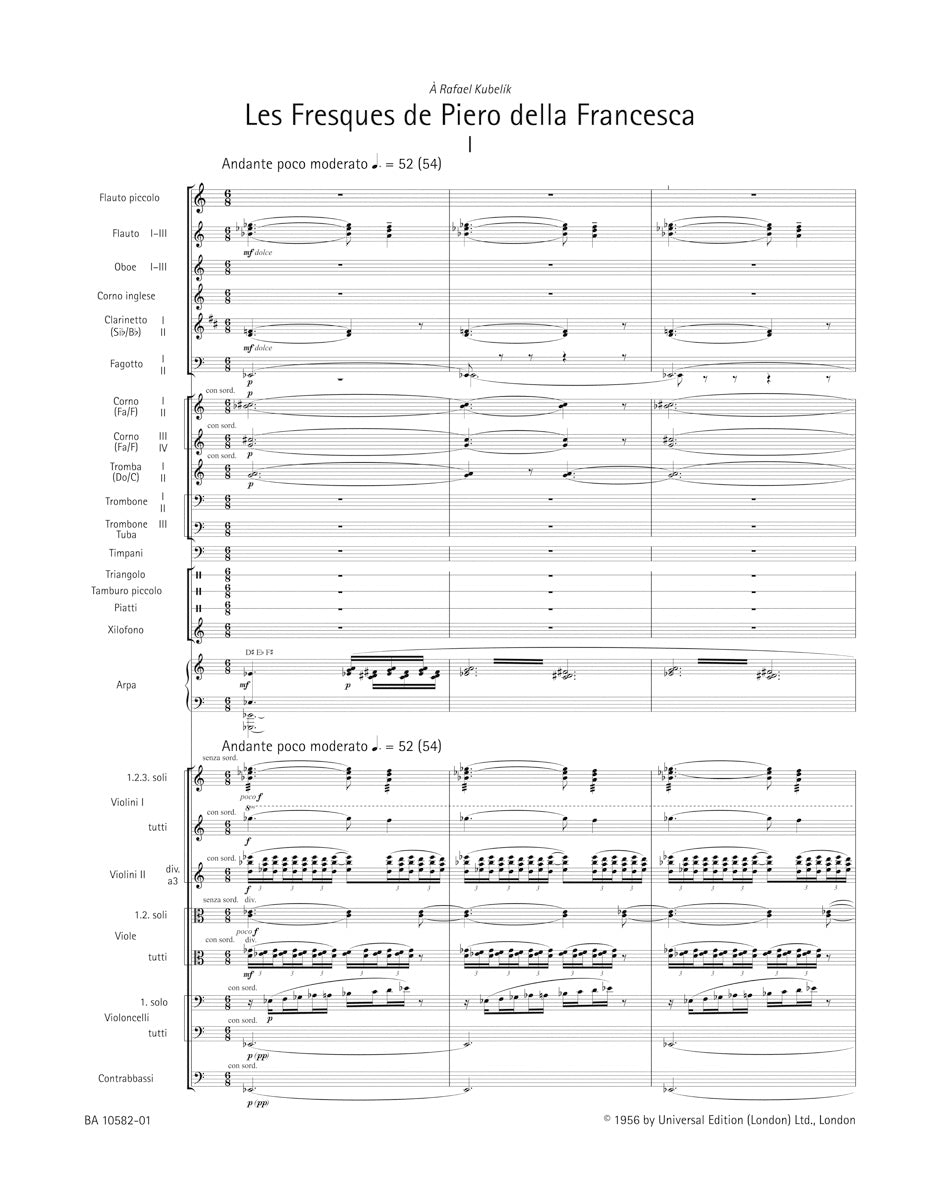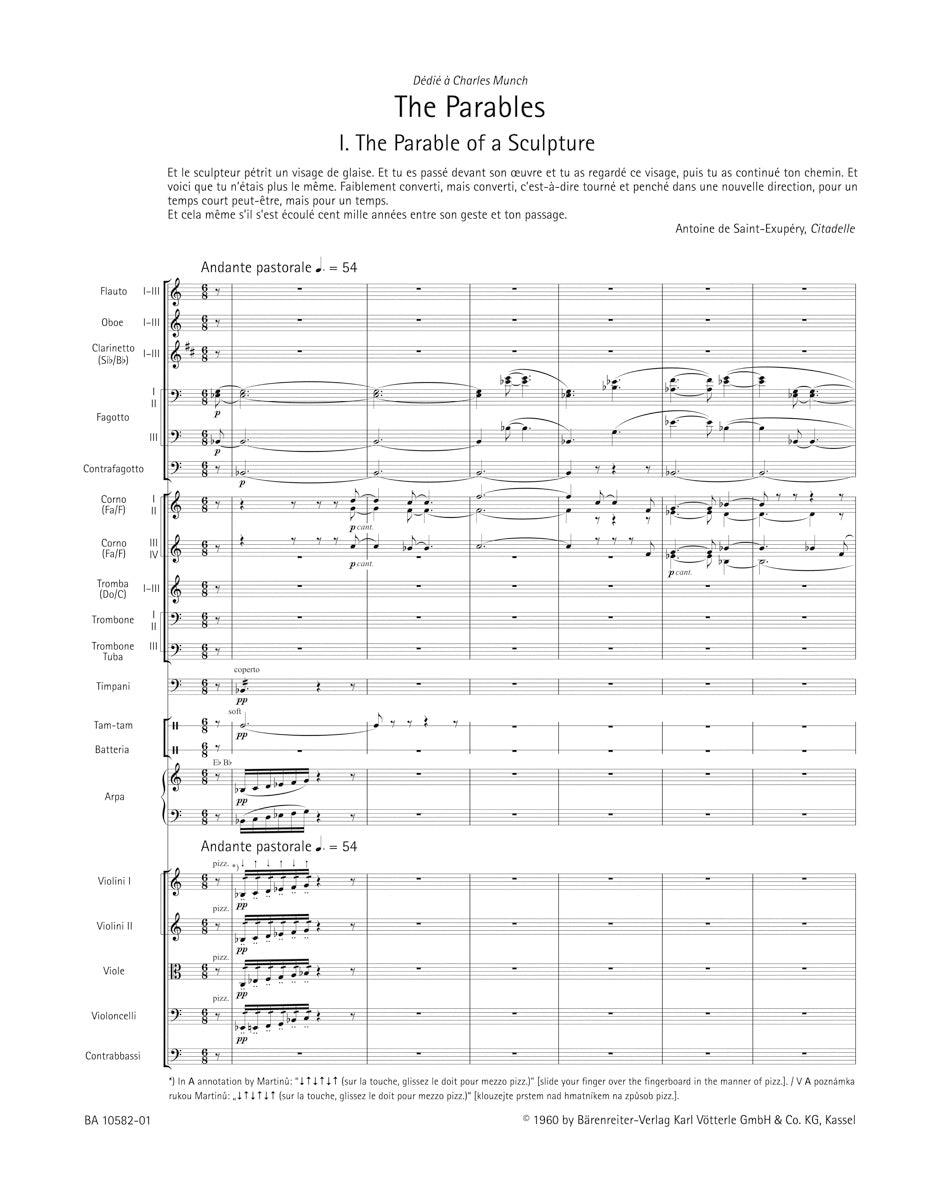Martinů: The Frescoes of Piero della Francesca, H. 352 / The Parables, H. 367
Complete Edition - Volume 11
In stock and typically ships within 1 business day.
- Composer: Bohuslav Martinů (1890-1959)
- Editors: Janina Müller, Arne Stollberg
- Format: Full Score
- Instrumentation: Orchestra
- Binding: Hardcover
- ISMN:
- Size: 10.4 x 13.0 inches
- Pages: 263
- Urtext / Critical Edition
Description
"The Frescoes of Piero della Francesca" and "The Parables" represent the culmination of the late Neo-Impressionist orchestral output of Bohuslav Martinů, marked by a fantastic, kaleidoscopic style. Martinů transforms his extramusical (visual, literary) inspirations into the principles of musical forms, which are open to associations from mood setting to philosophical inquiries into the essence of human existence.
The composer wrote "The Frescoes" in spring 1955 and conceived them after the cycle of Renaissance frescoes of Piero della Francesca in the Basilica of St Francis of Assisi in Arezzo, Italy. The premiere at the Salzburg Festival on 26 August 1956 was performed by the Vienna Philharmonic under Rafael Kubelík, to whom the composition is dedicated. Martinů wrote the first two movements of "The Parables" in July 1957; he returned to the work after a break in early 1958 (completing the final, third movement on 8 February). "The Parables" were premiered in Boston on 13 February 1959 by Charles Munch and the Boston Symphony Orchestra.
The mottos of the first two movements of "The Parables" reference "The Wisdom of the Sands" by Antoine de Saint-Exupéry. for the third movement, Martinů created a motto out of loosely strung excerpts from Georges Neveux's play "The Voyage of Theseus", which later provided the subject matter for Martinů's opera "Ariadne" (1958). Although the music of "The Parables" relates to the mottos only abstractly or, in the case of the third movement, perhaps somewhat accidentally, these texts are nevertheless an integral part of "The Parables".
This volume of the complete edition is based on a thorough assessment of all of the composer's autographs and their copies, as well as Martinů's extensive correspondence, which is the source of numerous new findings regarding the genesis of both compositions. The editors included this information in the Foreword, which also examines the mottos of "The Parables" in the context of the composer's late works.
Works:
- The Frescoes of Piero della Francesca,, H. 352
- The Parables, H. 367
Publishers use a lot of words to describe what they sell, and we know it can be confusing. We've tried to be as clear as possible to make sure you get exactly what you are looking for. Below are descriptions of the terms that we use to describe the various formats that music often comes in.
Choral Score
A score for vocalists that only contains the vocal lines. The instrumental parts are not there for reference. Generally, cheaper than a vocal score and requires multiple copies for purchase.
Facsimile
Reproductions of the original hand-written scores from the composer.
Full Score
For ensemble music, this indicates that the edition contains all parts on a single system (there are not separate parts for each player). In larger ensembles, this is for the conductor.
Hardcover
Hardbound. Generally either linen-covered or half-leather.
Orchestral Parts
Similar to a wind set, this is a collection of parts. In the case of strings, the numbers listed are the number of copies included, though generally these are available individually (often with minimum quantities required).
Paperback
When publishers offer multiple bindings (e.g. hardcover) or study scores, this is the "standard" version. If you're planning to play the music, this is probably what you want.
Performance / Playing Score
A score of the music containing all parts on one system, intended for players to share. There are not separate parts for each player.
Set of Parts
For ensemble music, this indicates that there are separate individual parts for each player.
Solo Part with Piano Reduction
For solo pieces with orchestra, this is a version that contains a piano reduction of the orchestra parts. For piano pieces, two copies are typically needed for performance.
Study Score
A small (think choral size) copy of the complete score meant for studying, and not playing. They make great add-ons when learning concertos and small chamber works.
Vocal Score
A score prepared for vocalists that includes the piano/organ part or a reduction of the instrumental parts.
Wind Set
For orchestral music, this is a collection of wind and percussion parts. The specific quantities of each instrument are notated.
With Audio
In addition to the printed music, the edition contains recordings of the pieces. This may be an included CD, or access to files on the internet.
With / Without Fingering (Markings)
Some publishers prepare two copies - a pure Urtext edition that includes no fingering (or bowing) suggestions and a lightly edited version that includes a minimal number of editorial markings.




